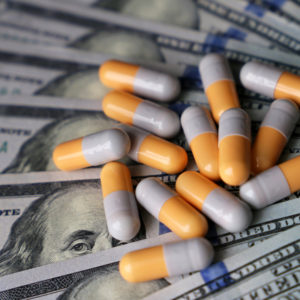Chuck Grassley is determined to lower drug prices. The Iowa senator has spent the past few months rallying support for the Prescription Drug Pricing Reduction Act, a bill he co-authored with fellow Senate Finance
Unfortunately, the Senate Finance Committee’s plan would not achieve the “real progress” Grassley has promised. Instead, the bill would impose a slew of new taxes on innovators. These penalties would stall future drug development and deprive Americans of lifesaving cures — all without reducing patients’ out-of-pocket costs.
The Senate Finance Committee’
Part D is a free-market success story. Instead of administering the benefit directly, Uncle Sam subsidizes private insurers who sell plans to beneficiaries. Since these insurers compete for customers, they have every incentive to keep costs low. As a result, Part D cost nearly $350 billion less over its first 10 years than the Congressional Budget Office originally estimated.
Unfortunately, the Senate Finance Committee
The bill’s most egregious penalty might be the 20 percent tax it would impose on manufacturers for drugs sold in Part D’s catastrophic phase. Right now, once Part D enrollees spend $5,100 out of pocket, the government and insurers will pay for 95 percent of each drug they take. The Senate package would force drug manufacturers to pick up the majority of that tab, which would cost biopharmaceutical firms $55 billion over the next 10 years.
This massive tax would save the government money, but it wouldn’t do much for patients. If the 20 percent manufacturer liability takes effect, 98 percent of Medicare beneficiaries won’t see a reduction in their pharmacy bills. Some could even face increased out-of-pocket costs.
Over time, this bill would harm patients even further by making it harder to fund drug research.
It takes around $2.6 billion on average for researchers to bring just one new treatment to market. Scientists rely on the revenue from successful drugs to recoup their investments and fund future research projects.
The myriad taxes in the Senate bill would impede manufacturers’ ability to earn back their development costs or turn a profit. That would make it difficult for these firms to attract the investment they need to research and develop new treatments. Without that funding, scientists would have to abandon the 4,500 drugs currently being developed for cancer, Alzheimer’s and other diseases.
This is exactly what happened to researchers in Europe. In the 1970s, the continent produced half of the world’s medicines. But over the years, drug makers’ revenues began to decline as European governments increasingly set artificially low drug prices. Today, Europe produces just a third of all new medicines worldwide.
The Senate package wouldn’t just hurt patients. The pharmaceutical sector supports close to 5 million jobs and contributes more than $1 trillion in economic output each year. Once taxes start depleting their revenue, these firms will have to cut jobs. Nearly half of drug firms said that reductions in research and development could lead to layoffs and facility closures, according to a recent poll.
The Senate Finance Committee’

